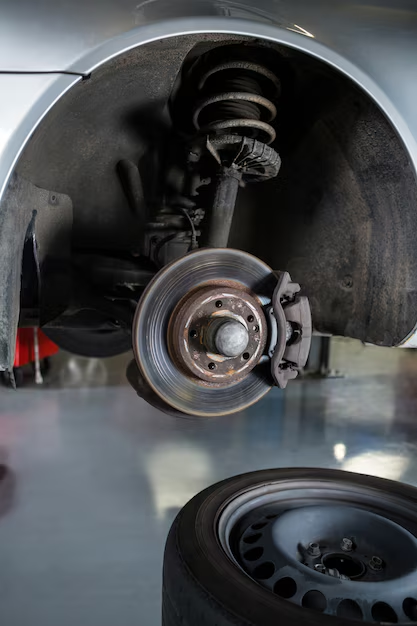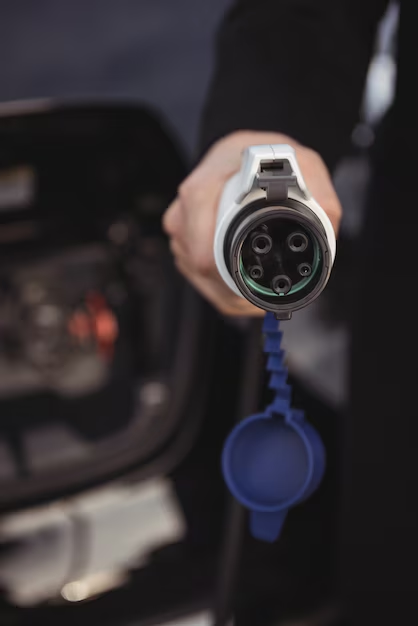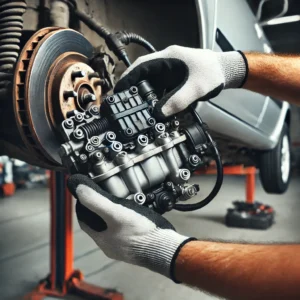
ABS Repair: A Simple Guide
The Anti-lock Braking System (ABS) is an important safety feature in modern vehicles. It helps prevent the wheels from locking up during hard braking, allowing you to maintain control of your vehicle. If something goes wrong with the ABS, it can affect your car’s safety. This guide will help you understand ABS repair in straightforward terms.
What is ABS?
ABS stands for Anti-lock Braking System. This system is designed to prevent your wheels from locking up when you brake hard. When the wheels start to skid, the ABS automatically reduces the brake pressure, allowing you to steer your vehicle while stopping. This is especially useful on slippery roads, such as those covered in rain or snow.


Why is ABS Important?
The main purpose of ABS is to help you stop safely and effectively. When ABS is functioning well, it can reduce your stopping distance and improve your control over the vehicle during sudden stops. It can make a big difference in avoiding accidents.
Frequently Asked Questions
Find answers to commonly asked questions about our products and services.
What is the function of an ABS system??
The ABS, or Anti-lock Braking System, is designed to prevent the wheels of a vehicle from locking up during braking. It helps maintain control by allowing the driver to steer while applying maximum brake force, especially in slippery or emergency situations. When the system detects a wheel about to lock, it modulates brake pressure to ensure the tires maintain grip on the road. This reduces the risk of skidding and improves overall vehicle safety by providing more stability during hard braking. It’s particularly effective in wet, icy, or uneven road conditions.
What is involved in repairing an ABS fault?
Repairing an ABS fault usually starts with a diagnostic scan to identify the specific issue, such as a faulty sensor, damaged wiring, or a malfunctioning ABS control module. Depending on the problem, the repair may involve replacing defective sensors, fixing wiring connections, or addressing issues with the ABS pump. Once the necessary parts are repaired or replaced, the system is reset to ensure proper functioning and safety.
Is it possible to perform ABS repairs on my own?
Replacing an ABS sensor is not a difficult task, but it is one that should be left to a professional. They will have the tools and knowledge necessary to do the job right. If you have the necessary tools, knowledge, and skills. Basic tasks like checking fuses, inspecting wiring, or replacing wheel speed sensors can be manageable for someone with mechanical experience.
What are the symptoms of an ABS fault?
The cars ABS warning light stays on permanently once the engine is started. The brakes lock up very easily when braking on slippery surfaces. The brakes do not respond as well as normal under hard braking
How much time does an ABS repair typically take?
The duration of an ABS repair can vary significantly depending on the specific issue and the make and model of the vehicle. Generally, simple repairs, such as replacing a faulty sensor, might take about one to two hours. However, more complex issues, like replacing the ABS control module or pump, could take several hours, sometimes up to a full day. Additionally, if diagnostic tests reveal multiple problems, it may extend the repair time. It is always best to consult with a mechanic for a more accurate estimate based on your vehicles condition.
How frequently should I replace parts of the ABS system?
The components of the ABS system do not have a specific replacement schedule, as their lifespan can vary based on driving conditions, vehicle usage, and maintenance practices. Generally, it is advisable to inspect ABS components, such as sensors, pumps, and wiring, during regular vehicle maintenance or whenever you experience braking issues. If the ABS warning light activates or you notice any irregularities in braking performance, it is crucial to have the system checked and any faulty parts replaced promptly. Keeping the system in good condition can enhance safety and prolong the lifespan of the components.
How often do ABS faults occur in vehicles?
ABS faults are not uncommon, particularly in vehicles that are older or have been subjected to harsh driving conditions. Factors like sensor failure, electrical issues, and brake fluid contamination can contribute to these faults. While many modern vehicles come equipped with advanced ABS systems that are generally reliable, they are still susceptible to malfunctions over time. Drivers should be vigilant for warning indicators and unusual braking performance, as early detection can prevent more significant issues and enhance safety on the road. Regular inspections can help identify potential problems before they lead to faults.
What occurs when the ABS system fails?
When the ABS system fails, the vehicle may experience reduced braking control, especially during sudden stops or on slippery surfaces. Without the anti-lock feature, the wheels can lock up when braking hard, which can lead to skidding and difficulty steering. The driver may also notice the ABS warning light illuminating on the dashboard, signaling a malfunction. While the standard braking system will still operate, the increased stopping distance and reduced stability can pose serious safety risks. It is crucial to address any ABS failures quickly to restore optimal braking performance and safety.
When is it necessary to replace ABS sensors?
You will only know for sure if, and indeed which, ABS sensor requires replacement after a diagnostic investigation has taken place. Therefore we advise in all circumstances that this is carried out prior to booking the replacement of any components.
How much does an ABS sensor replacement cost?
You should consider replacing ABS sensors when you notice warning signs such as the ABS warning light illuminating on the dashboard or experiencing inconsistent braking performance. Other indicators include a sudden loss of ABS functionality, unusual noises during braking, or if the brakes feel spongy or unresponsive. Additionally, if diagnostic tests reveal faulty sensors during routine maintenance, replacement is necessary to ensure the ABS system functions correctly. Regular inspections and timely replacements can help maintain optimal braking safety and performance.
Is it safe to operate a vehicle with the ABS warning light illuminated?
Driving with the ABS warning light on is not considered safe. When this light is illuminated, it indicates a malfunction in the ABS system, which could compromise the vehicles braking performance, particularly during emergency situations. While the regular braking system will still function, you may lose the anti-lock braking capability, leading to increased stopping distances and a higher risk of skidding on slippery surfaces. It is advisable to have the vehicle checked by a qualified technician as soon as possible to diagnose the issue and ensure the braking system operates correctly.
What are the indicators of a malfunctioning ABS module?
A malfunctioning ABS module may present several warning signs, including the ABS warning light illuminating on the dashboard, which indicates a fault in the system. Drivers might also notice erratic or uneven braking, such as a spongy or unresponsive brake pedal. Additionally, the ABS may not engage during hard braking, leading to wheel lock-up and skidding. In some instances, you might experience strange noises from the brakes when applying pressure. If you observe any of these symptoms, it is important to have the ABS system inspected by a professional to ensure safe vehicle operation.
What is the role of an ABS wheel speed sensor in a vehicle?
The ABS wheel speed sensor plays a crucial role in monitoring the rotational speed of each wheel. It sends this data to the ABS control module, which uses it to determine if any wheel is about to lock up during braking. By constantly measuring the wheel speed, the sensor helps the ABS system modulate brake pressure to prevent skidding and maintain steering control. If a wheel is detected to be rotating slower than the others, the ABS system can adjust braking force accordingly, enhancing safety and stability during sudden stops or on slippery surfaces.
How frequently should ABS wheel speed sensors be replaced?
ABS wheel speed sensors typically do not have a set replacement schedule, as their lifespan can vary based on driving conditions and vehicle usage. However, they may need to be replaced if they become damaged, corroded, or fail due to exposure to harsh elements like water or road salt.
What are the indicators that an ABS wheel speed sensor is failing?
Indicators of a failing ABS wheel speed sensor include the ABS warning light illuminating on the dashboard, signaling that the system has detected a problem. You may also experience erratic braking behavior, such as a spongy brake pedal or the wheels locking up during hard stops. In some cases, the traction control or stability control systems may also malfunction, leading to a lack of traction in slippery conditions.
Can you operate a vehicle with a damaged or malfunctioning ABS wheel speed sensor?
While you can technically drive a vehicle with a broken or faulty ABS wheel speed sensor, it is not advisable. The ABS system relies on accurate data from the wheel speed sensors to function correctly. If a sensor is malfunctioning, the ABS may not engage during hard braking, which increases the risk of wheel lock-up and loss of steering control, especially in slippery conditions. Furthermore, other safety systems, such as traction control and stability control, may also be affected.
Is an illuminated ABS light a failure during an MOT test?
Yes, an illuminated ABS light is considered a failure during an MOT test. The presence of the ABS warning light indicates a fault in the anti-lock braking system, which can compromise vehicle safety. Since the MOT test assesses the functionality of key safety components, any warning lights related to the braking system, including the ABS, must be addressed. If the ABS light is on, the vehicle will not pass the MOT until the underlying issue is diagnosed and repaired, ensuring that the braking system functions properly.
What is the estimated cost for repairing or replacing an ABS pump?
The cost to fix or replace an ABS pump typically ranges from £250 to £1,200, depending on the vehicles make and model and the extent of the repairs needed.
ABS Blogs
The Importance of ABS in Modern Vehicles and Why Replacement Matters
Anti-lock Braking Systems (ABS) are a cornerstone of modern vehicle safety, preventing…
Key Components of ABS and When to Replace Them
The ABS is a sophisticated system comprising several components that work together…
How ABS Works to Prevent Wheel Lock-Up
ABS operates with precision to maintain vehicle control during hard braking. By…
The Advantages of ABS and Why Replacement is Worth It
ABS offers significant benefits that enhance safety and performance, making its maintenance…
Maintenance and Replacement of ABS: Signs, Costs, and Best Practices
Proper maintenance and timely replacement of ABS components are critical to ensure…
The Future of ABS: Advancements and Integration with Modern Safety Systems
ABS technology continues to evolve, promising even greater safety and efficiency as…






